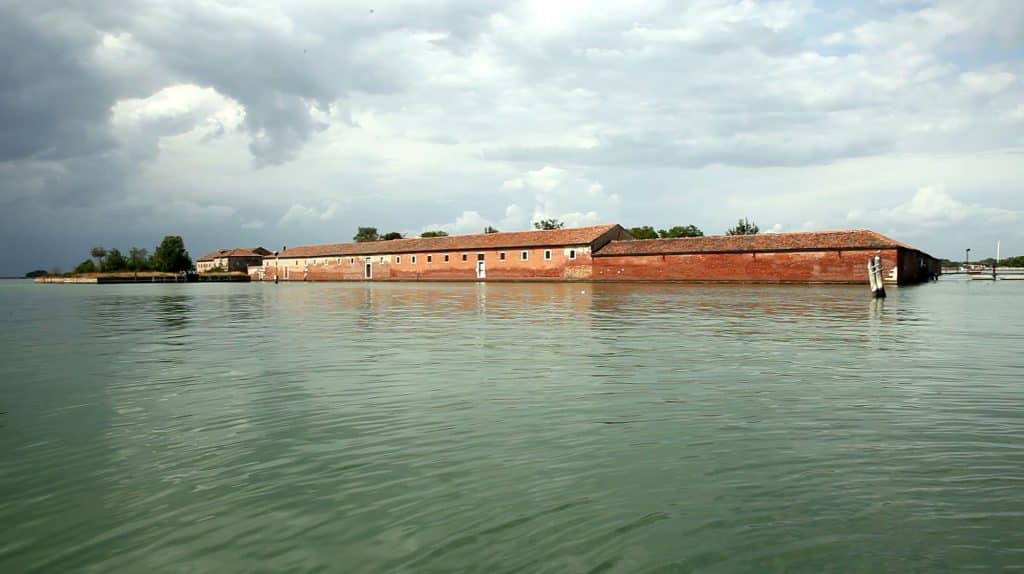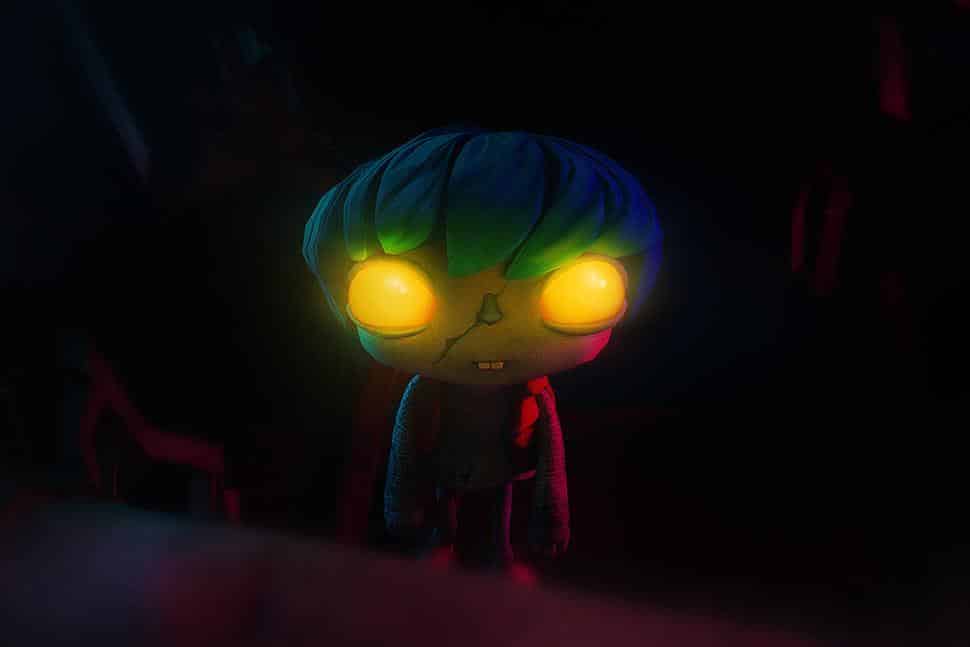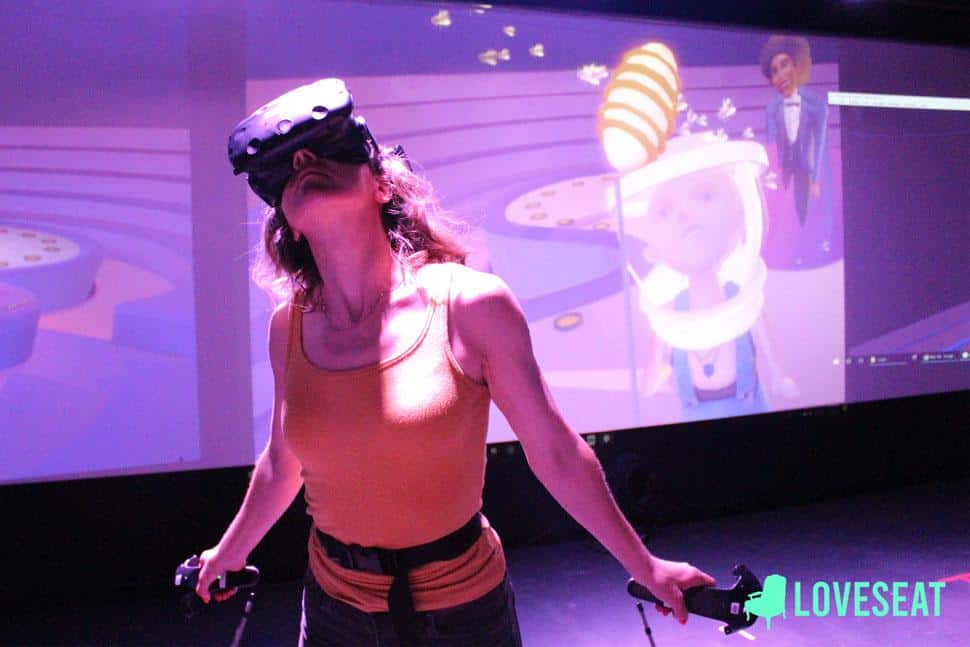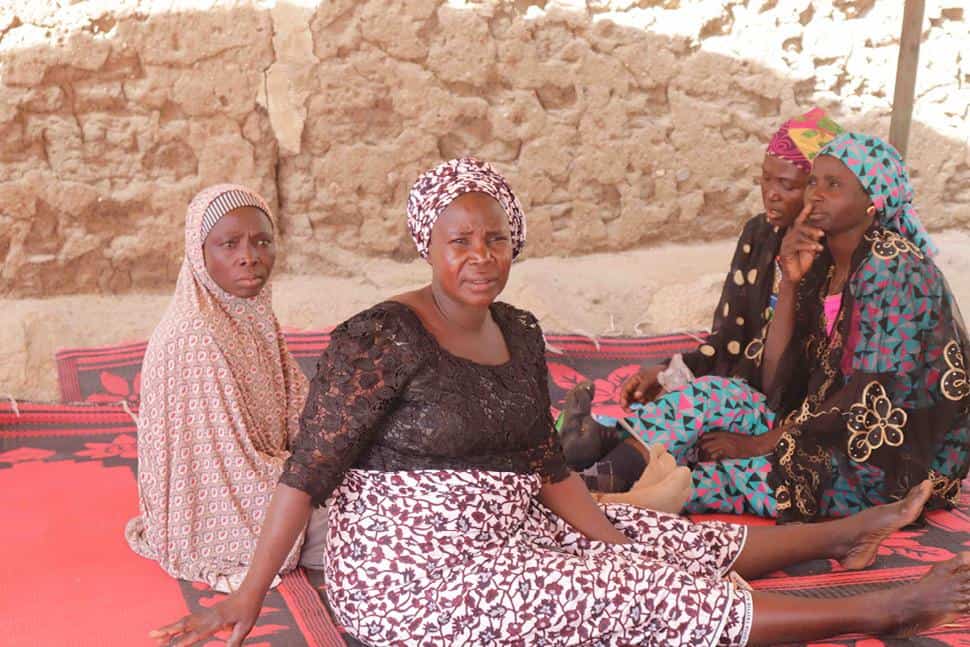This fall marks the third year of VR at the 76th Venice Film Festival, or what is now known as Venice Virtual Reality. The works are divided into two tracks, one focusing on linear 360 videos and the other on interactive and non-narrative works. All of the projects are shown on the Lazzaretto Vecchio, an island 50 yards off the Lido.

With its well-designed website (a seeming rarity among film festivals), it’s worth checking out the entire selection of projects. Each one is accompanied by an image, the program’s synopsis, and a director’s statement. The latter is particularly helpful, giving you another perspective on the work.
Venice Film Festival

VR Room notes the increasing number of Hollywood involved in the projects.
As in feature films, VR projects are increasingly being sold on the back of the talent involved in them. Several Venice VR projects have stars involved. Oscar-winning UK writer-director Benjamin Cleary and VR creator Michael O’Connor’s new interactive animated VR project, Glimpse, is voiced by Rocketman’s Taron Egerton (playing a heartbroken panda) and Lucy Boynton (Bohemian Rhapsody) as the deer he has just broken up from. Boynton is due on the Lido later in the week to support the filmmakers. Gloomy Eyes is narrated by Colin Farrell while Rosario Dawson stars in animated 70s punk project Battlescar – Punk Was Invented By Girls, which is screening in Venice’s Linear VR competition.
It’s also worth noting that the hardware manufacturers are funding content. While content is not the challenge it used to be, it’s essential that companies like Oculus and HTC work with those on the creative side.
Oculus is also financing VR content and was the backer of Celine Tricart’s Venice VR competition contender, the social impact project The Key, which was financed through Oculus division, VR for Good. Meanwhile, US company Magic Leap, whose selling point is blending visual and digital worlds, backed Venice Best OF VR title, Tonandi.
More Interactivity
As with this year’s Sundance Film Festival, there is greater interactivity in the non-linear section. The technical advances are pushing this, especially with this year’s release of the remarkable Oculus Quest HMD. As Venice VR curator Liz Rosenthal notes,
With the new tetherless Oculus Quest, for example, the user experience is just so much better. You can now create interactive experiences where you’re exploring your own world and interacting with objects without having to be wired to a computer. We’ll start to see social entertainment experiences developed for these new platforms.

As with Sundance, several projects, including “Cosmos Within Us” and “The Key,” are incorporating live performances in their virtual spaces. Curator Michel Reilhac commented in Variety,
We feel this is important. When you start adding that kind of interactivity into the mix, that allows the viewer to start impacting how the story is going to unfold. And that’s when you can really break the fourth wall.
Finally, A Festival That Takes The Audience Seriously
One of the most frustrating aspects of VR at film festivals has been the endless lines and poorly designed ticketing/reservation systems. Traditional filmgoers get tickets for a film, and they get to see it. With virtual reality experiences at a film festival, you never know if you’ll miss out since didn’t line up soon enough. Or lined up in the wrong place.
Rosenthal is emphatic that Venice VR will treat the audience the same way they’re treated in the film section.
We made a point of treating the audience the way they expect to be treated when they go to the cinema. You can book an experience and you know it’s going to start on the dot and finish when it has to. And there will be no lines. Nobody wants to wait around for ages. The Biennale has made a really big effort in terms of making the ticketing system really smooth.
All we can say is: it’s about time. Hopefully, the Sundance and Tribeca will follow their lead.
This Year’s Winner is . . .

Eliza McNitt’s beautiful work, Spheres, won the top honor at the 2018 Venice Film Festival. We’ll be curious to see if the 2019 award goes to one of the powerful documentary projects in the festival or one of the more interactive works.
No matter who wins, the Venice Film Festival is making sure that virtual reality is seen as a new form of creative expression in understanding the human condition.
Emory Craig is a writer, speaker, and consultant specializing in virtual reality (VR) and generative AI. With a rich background in art, new media, and higher education, he is a sought-after speaker at international conferences. Emory shares unique insights on innovation and collaborates with universities, nonprofits, businesses, and international organizations to develop transformative initiatives in XR, GenAI, and digital ethics. Passionate about harnessing the potential of cutting-edge technologies, he explores the ethical ramifications of blending the real with the virtual, sparking meaningful conversations about the future of human experience in an increasingly interconnected world.

